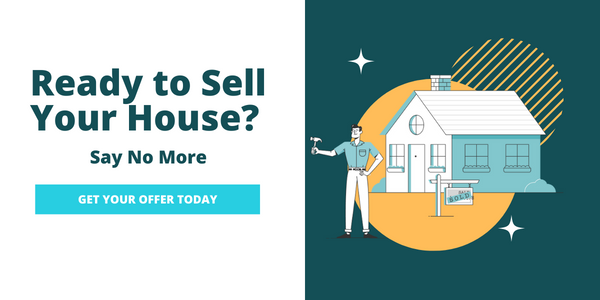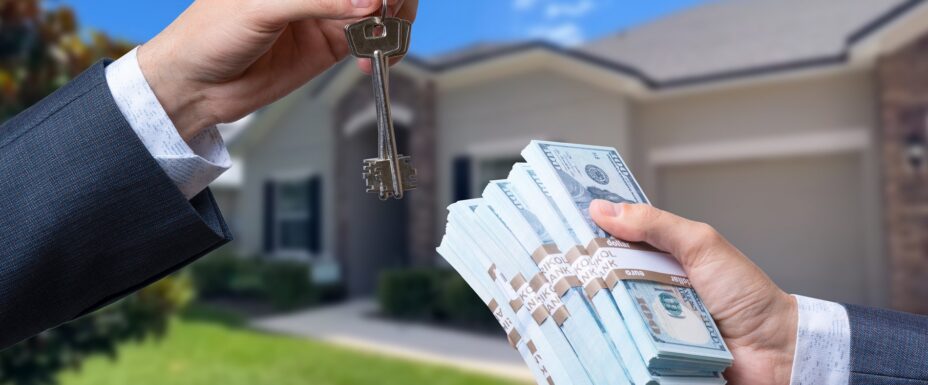What is Equity in Real Estate?
Reviewed by: Brandon Brown
Understanding Real Estate Equity
Equity in real estate is the difference between what your home is worth and how much you still owe on your mortgage loan. Think of it like this: if your house was a piggy bank, the part that you’ve already paid off is your equity, and the part you still owe is your debt. For homeowners looking to sell, understanding home equity is important because it decides how much money you take home after the sale. If you have positive equity, you might make a profit. But if your equity is low or even negative, selling can be tricky. You might need to cover extra costs just to close the deal. That’s where FlipSplit comes in. If you’re dealing with low equity, we help you sell your real estate without any hidden fees, expensive repairs, or agent commissions. Our goal is to make selling your property simple, fair, and profitable for you.
How Does Home Equity Work?
Calculating Home Equity
At its core, home equity is calculated with this simple formula:
Home’s Market Value – Mortgage Balance = Equity
For example, if your house is worth $400,000, and you owe $250,000 on your loan, your equity would be $150,000. The more your home value increases or your mortgage balance decreases, the more equity you build.
Positive vs. Negative Equity
Positive Equity: When Your Home is Worth More Than You Owe
Positive equity happens when your property’s value is worth more than your mortgage balance. If you sell, you could walk away with extra money after paying off your loan. Here’s a scenario:
- You bought a home for $300,000 and took out a mortgage loan for that amount.
- Over time, you make mortgage payments and pay off $50,000, so now you owe $250,000.
- Meanwhile, the real estate market improves, and your home’s value increases to $350,000.
- Now, your equity is $100,000 ($350,000 – $250,000 = $100,000).
The extra $100,000 belongs to you when you sell, and you can use it for a new home, an investment, or savings. The important part is that when your home value rises, your mortgage balance does not increase—you only owe what’s left on your loan.
Negative Equity: When You Owe More Than Your Home is Worth
Negative equity, also called an underwater mortgage, happens when your home’s value drops below what you still owe on your mortgage. This can make selling difficult because the sale price wouldn’t be enough to pay off your full loan balance. Here’s an example of how that works:
- You bought a home for $300,000 and took out a mortgage loan for that amount.
- You have only paid off $10,000, so you still owe $290,000.
- However, the real estate market declines, and now your home’s value drops to $270,000.
- Your mortgage balance ($290,000) is higher than what your home is worth ($270,000), meaning you have negative equity of -$20,000.
If you try to sell your home, you would not make enough money to fully pay off the loan. In this case, you might need to cover the difference out of pocket, negotiate a short sale, or explore other options like refinancing or selling to a direct home buyer like FlipSplit. If you’re in a negative equity situation, don’t panic—there are options, including selling to FlipSplit, which offers a cash sale with no fees or commissions, so you can move forward without financial strain.
How to Build Equity (And Why It Matters When Selling)
Paying Down Your Mortgage
Each mortgage payment you make lowers your loan balance and increases your equity stake. The longer you’ve been paying, the more equity you’ve built. Making extra payments or choosing a shorter loan term can help you build wealth in your home even faster.
Home Value Appreciation
Your home’s market value changes over time based on the real estate market. If property values in your area increase, your equity grows too. Paying attention to interest rates, neighborhood trends, and property value shifts can help you decide the best time to sell.
Smart Home Improvements (But Do They Always Make Sense?)
Certain home improvements, like upgrading your kitchen or improving curb appeal (how nice a house looks from the street), can increase home value and, eventually, your equity. But not all improvements offer a great return on investment (ROI) because some renovations may cost more than the amount they add to your home’s value. While certain upgrades can make your property more attractive, they don’t always guarantee that buyers will pay a higher price when you sell.
- Kitchen Remodel – If you spend $15,000 upgrading appliances, countertops, and cabinets, it might increase your home’s value by $20,000.
- Luxury swimming pool – If you spend $50,000 installing a pool, it may only increase home value by $20,000. This means you get a -$30,000 loss, making it a bad investment. High-maintenance features like this can actually scare off buyers who don’t want the upkeep.
It’s important to consider whether improvements are personal preferences (that not every buyer wants) or if it’s practical. If your home needs major updates, selling as-is to FlipSplit might be a better choice. Instead of spending money on repairs, you can sell your home quickly and still get a cash offer that reflects its market value.
How Home Equity Impacts Selling Your Home
Many homeowners wonder, can you sell a house with a mortgage? The answer is yes! As long as the selling price covers what you still owe—or you have enough savings to cover the difference—you can sell your home even if you’re still making mortgage payments.
Selling with High Equity
If you have high equity, selling your house is easier. After paying off your mortgage balance, you keep the profit—which you can use to buy a new home, invest, or reach other financial goals.
Selling with Low or Negative Equity
For homeowners with low equity, selling the traditional way can be expensive. You may have to cover closing costs, agent commissions, or even bring cash to closing if your home’s value is lower than what you owe.
FlipSplit’s Solution for Low-Equity Sellers
Selling with FlipSplit means:
- No agent commissions or fees – You keep more of your money.
- Sell as-is – No costly repairs or upgrades needed.
- Cash offers – No waiting, no uncertainty—just a fair offer fast.
Whether your home equity is low, negative, or not where you’d like it to be, FlipSplit provides a stress-free way to sell and move forward.
How Homeowners Use Home Equity
Home Equity Loans & HELOCs
A home equity loan or home equity line of credit (HELOC) lets you borrow against your equity to access funds for renovations, payment, or other expenses. However, taking on extra debt comes with risks, especially if interest rates go up.
Investment Opportunities
Many investors use home equity to finance additional real estate investments, like rental properties or house flips. This can be a great way to build wealth, but it requires careful management and an understanding of market conditions.
Debt Consolidation & Emergency Funds
Some homeowners use a home equity loan to pay off other debts or cover emergency costs. While this can lower monthly payments, it’s important to consider whether it’s the right financial move for you.
Alternative Options If You Have Low or No Equity
Refinance the Mortgage
A mortgage refinance works by replacing your current mortgage with a new loan that has better terms—like a lower interest rate, different monthly payments, or even extra cash in your pocket. While refinancing can be a great option to save money, it’s not always available for homeowners who have low equity or bad credit. If you don’t qualify, you might need to consider other options, like selling to FlipSplit for a hassle-free cash offer.
Try a Short Sale
A short sale means selling your home for less than what you owe with your lender’s approval. While this means you don’t make a profit, it can help you avoid foreclosure (where the lender takes your home for missing payments), reduce or eliminate your debt, and minimize the impact on your credit score.
Rent the Property Instead
Becoming a landlord can help cover mortgage payments while waiting for home value appreciation, but it comes with challenges like vacancies, handling tenants, and maintenance costs.
Sell to a Direct Home Buyer (A Faster, No-Hassle Option)
Instead of dealing with the real estate market, selling to a direct home buyer like FlipSplit gives you a quick, hassle-free solution. You’ll get a cash offer without worrying about repairs, fees, or your home’s equity..
Sell Your Home Confidently with FlipSplit
Home equity is a major factor when selling, but even if your equity is low, you still have options. Whether you want to build equity over time, explore financial products, or sell your home for a cash offer, there’s a way forward. At FlipSplit, we make it easy to sell your home with confidence, no matter your equity situation. Need to sell but worried about equity? Get a no-obligation cash offer from FlipSplit today!

Reviewed by: Brandon Brown
As a long-time Asset Manager, Investor, Real Estate Agent, and Broker/Owner of BayBrook Realty in Orange County, Brandon Brown is one of FlipSplit’s lead Real Estate experts. Having worked on over 2,000+ real estate transactions, Brandon brings a depth of knowledge that ensures clients are appropriately treated with honesty and integrity. His insights and advice have been published in numerous blogs beyond FlipSplit, and he keeps a close eye on market trends and statistics, which are updated weekly on his social media pages. Outside work, you can find him participating and serving at church, cycling, mountain biking, surfing around Orange County and beyond, and enjoying time with his wife and two daughters.










